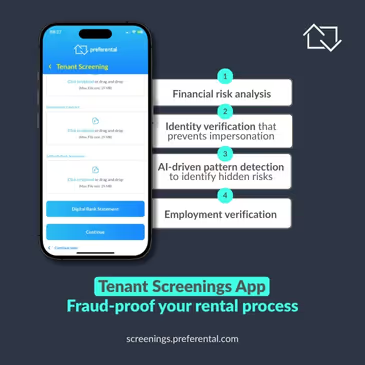Why Smart Landlords are partnering up: The Top 5 Rental Challenges facing SA Property Owners in 2025
Key Takeaways:
- Tenant quality, legal compliance, and cash flow are the biggest pressure points for landlords in today’s market.
- 22% of SA property sales are driven by investors, but DIY rental management is proving unsustainable for many.
- Partnering with expert letting agents helps landlords preserve peace of mind, legal safety, and long-term returns.
“The rental market is much more about people, process, and peace of mind than it is about property,” says Pearl Scheltema, CEO of Fitzanne Estates. As 2025 unfolds, this sentiment has never been more relevant for South African landlords navigating a complex and increasingly regulated rental landscape.
According to the TPN Credit Bureau Residential Rental Monitor (Q1 2025), national vacancy rates have dropped marginally from 8.13% to 7.84%, indicating some market stabilisation. But for property owners, especially those managing rentals without professional support, daily operational pressures are growing.
Letting property remains one of the most accessible forms of wealth creation. Yet, for landlords to succeed, they must understand and address the evolving realities of the rental market.
Here are the top five primary challenges landlords are facing today and why working with a letting agent may be their smartest move yet
1. Tenant Screening is More Complex Than Ever
The foundation of a successful rental experience is the tenant but finding a reliable one is not straightforward. Over 50% of rental agents cite tenant vetting as a top concern, and for good reason.
“Tenant screening is more than just checking a payslip or credit score,” says Scheltema. “It’s about understanding the full context of a tenant’s financial and rental history. One wrong decision can lead to months of loss and legal stress.”
Without proper vetting tools and experience, many landlords unintentionally place their investments—and peace of mind—at risk.
2. Navigating Legal and Regulatory Minefields
South Africa’s rental landscape is regulated by the Rental Housing Act, POPIA, and other frameworks that landlords must comply with. These laws govern everything from lease terms and privacy rights to dispute resolution.
“Staying legally compliant is not optional, it’s essential,” Scheltema warns. “A well-drafted lease agreement is your first line of defence. Without it, you’re exposed.”
Even experienced landlords can struggle to stay ahead of amendments and enforcement requirements. The risks of falling behind include financial penalties, tenant disputes, and reputational damage.
3. Property Maintenance is Time-Consuming and Costly
Routine upkeep and unexpected repairs are inevitable in property rental. But they often consume more time and money than landlords anticipate especially when juggling unreliable contractors or delayed responses.
“Proactive maintenance preserves your property’s value and your tenant’s satisfaction,” Scheltema explains. “Waiting until something breaks usually ends up costing more, financially and reputationally.”
Landlords must also account for service provider coordination, emergency call-outs, and compliance checks, which quickly become overwhelming when self-managing multiple units.
4. Keeping Pace with a Shifting Market
From rising interest rates to semigration trends, the rental market is in flux. In cities like Pretoria, two-bedroom apartment rents range from R7,500 to R9,000, depending on the suburb but many landlords still price emotionally rather than strategically.
“Too many landlords price their units based on bond repayments, not market demand,” notes Scheltema. “That’s a fast track to vacancies. A correctly priced property fills quickly and stays filled.”
Understanding local market dynamics, demand trends, and area growth potential is essential for accurate pricing and long-term returns.
5. Ensuring Consistent Rental Income
Cash flow disruption is one of the most stressful experiences for landlords. Missed payments can impact mortgage obligations, levy payments, and maintenance costs.
Even in provinces like the Western Cape, where tenant arrears are lower, reliable rental collection is far from guaranteed.
“Landlords need clear payment protocols and good communication habits with tenants,” advises Scheltema. “And above all, contingency planning is vital when cash flow is tight or uncertain.”
Why Partnering with a Professional Letting Agent is a Strategic Advantage
Given these challenges, professional property management is no longer a luxury, it’s a necessity for most landlords.
“A letting agent brings structure, expertise, and emotional distance to an otherwise stressful and personal process,” says Scheltema. “It’s not just about saving time, it’s about protecting your investment.”
With increasing compliance obligations, higher tenant expectations, and the need for consistent returns, landlords benefit from:
- Expert tenant screening
- Legally compliant lease agreements
- Scheduled property maintenance
- Market-informed rental pricing
- Reliable rent collection and arrears management

“Letting agents don’t just take the work off your plate, they help grow your portfolio sustainably,” Scheltema concludes.
In an era where property remains one of the strongest long-term investments, smart landlords are realising that going it alone can cost more than it saves. Partnering with a trusted letting agency is not only strategic, it’s essential for success in 2025 and beyond.













.avif)


.avif)

.avif)




.svg)





























.avif)
